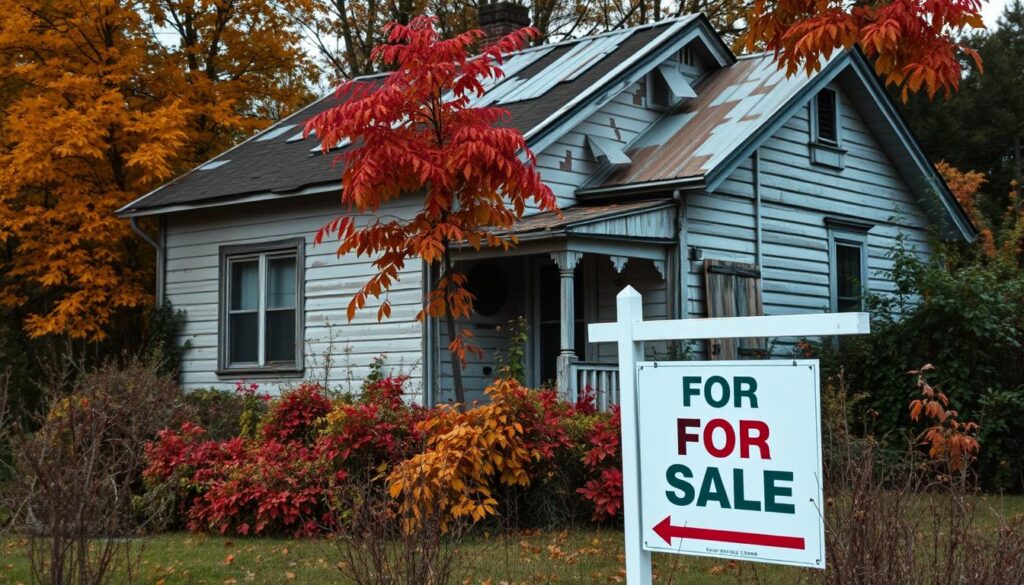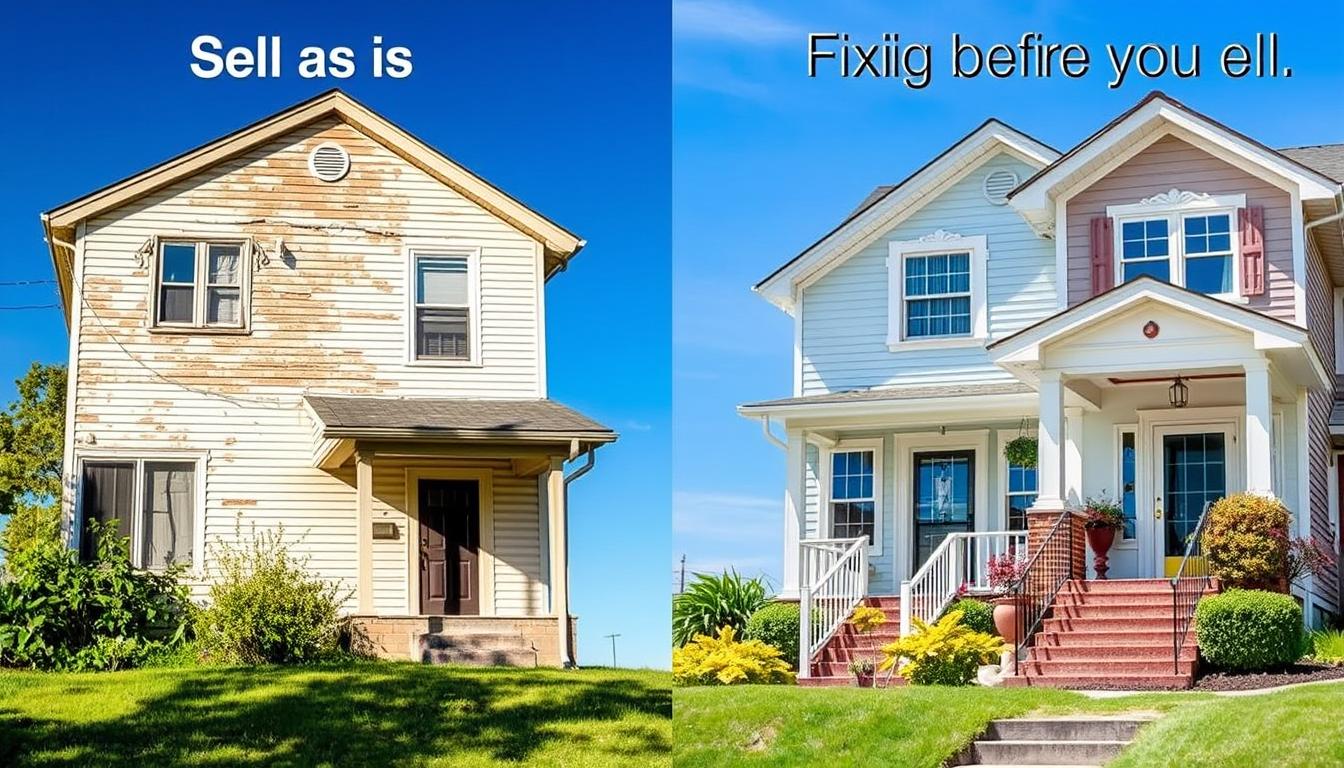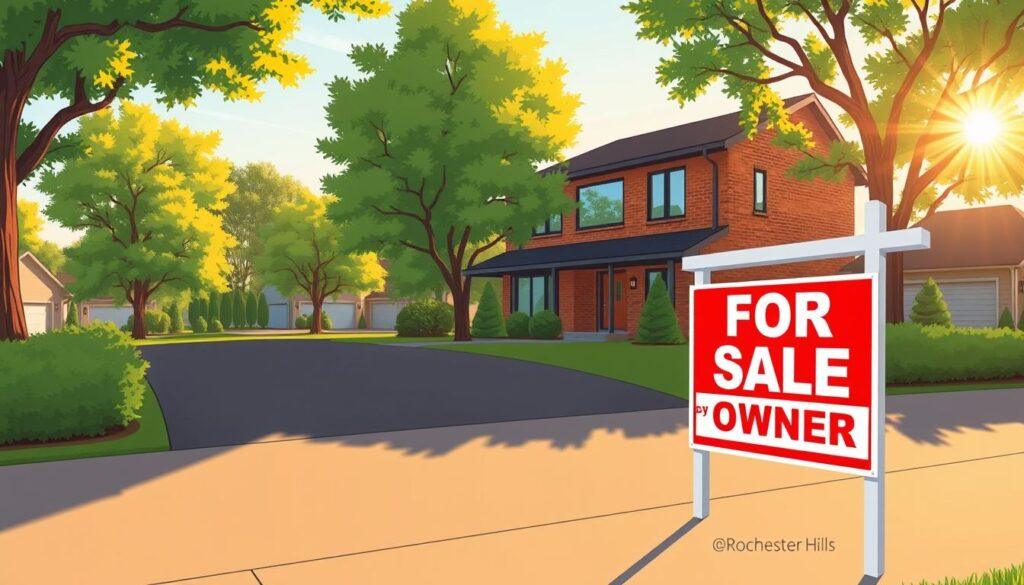Are you deciding between selling your home as-is or fixing it up first? This choice is common for homeowners today. Selling a house as is might seem quick, but fixing it up could increase its value.
In a seller’s market, homes often sell for more than their listed price. But, repairs can be costly. For example, a new HVAC system can cost between $5,000 and $10,000. Should you renovate or sell as is? Knowing your local market and what buyers want is key. For more on the pros and cons, check out this resource.
Key Takeaways
- Deciding between selling as is vs fixing before you sell can greatly impact your final sale price.
- Investing in renovations may attract more buyers, particularly in a competitive market.
- Selling as is can save both time and money, appealing to those facing urgent financial situations.
- Understanding buyer preferences in your local market can inform your selling strategy.
- Home repairs can be expensive, with major updates having uncertain returns on investment.
Understanding the Concept of Selling As Is
Selling a home “as is” means selling it in its current state, without any repairs. This way, owners can skip the costly and time-consuming renovations. By not fixing any issues, sellers can make the sale faster and cheaper.
Definition of Selling As Is
When you sell a property without repairs, buyers see it as it is. This can speed up the sale, but sellers must tell buyers about any problems. Being open about issues helps avoid legal trouble and keeps buyers informed.
Common Situations for Selling As Is
Many homeowners wonder if they should sell their house as is. Here are some reasons why:
- Lack of budget for repairs
- Need for a quick sale due to job relocation
- Inheritance of property that requires extensive work
- Desire to take advantage of a favorable seller’s market
These situations show the challenges homeowners face. Selling as-is can be quicker, but it might mean getting lower offers. Knowing this can help homeowners decide wisely.
Selling as-is has its pros and cons. Sellers should think carefully and maybe get advice. For more on the *selling home as is process*, check out this guide.
| Situation | Reason for Selling As Is | Considerations |
|---|---|---|
| Lack of Budget | Repairs are financially unfeasible | Potentially lower offers |
| Job Relocation | Need for a rapid sale | Limited time for repairs |
| Inherited Property | Property may require extensive repairs | Emotional ties may complicate decisions |
| Sellers Market | High demand may allow for as-is sales | Market trends influence buyer interest |
Advantages of Selling Your Home As Is
Selling a house as is has many benefits, especially for those in a hurry or facing money troubles. It means no stress or cost for repairs or updates. This is great for homes that need work.
No Repairs or Renovations Needed
One big plus is saving money on repairs. Homeowners can avoid spending thousands on updates. For example, here are some common costs:
- New roof – approximately $9,500
- Bathroom renovation – around $12,100
- Kitchen remodel – up to $27,000
These costs add up fast. Selling as is is often the smarter choice. It’s quicker than fixing up the house, which is good for those who need to move fast.
Flexibility in Closing
As-is sales can close faster. This is great for sellers who want a quick sale. Cash buyers often look for these properties, making offers come in quickly.

| Aspect | Traditional Sale | Selling As Is |
|---|---|---|
| Repair Costs | High – significant investment required | None – avoids upfront costs |
| Time to Sell | Longer – delays due to renovations | Quicker – immediate focus on sale |
| Buyer Appeal | Attracts more buyers | Appealing to cash buyers and investors |
| Closing Flexibility | Less flexible | More accommodating |
Disadvantages of Selling As Is
Selling a house as is has its downsides. It might help you get out of owning a home fast. But, it can also hurt your financial gain and attract fewer buyers.
Potentially Lower Sale Price
One big issue is that you might get offers that are way lower than what your house is worth. Buyers see as-is homes as projects, so they offer less money. They think they’ll have to pay for repairs later.
For example, homes needing big fixes like plumbing or foundation work might get even fewer offers. Buyers might even ask for more discounts than the repairs cost. This can really lower the price you get for your home.
Reduced Buyer Interest
As-is homes usually appeal to a certain type of buyer, like investors or flippers. This can make it harder to sell your home quickly. Many buyers want homes they can move into right away.
Even small improvements can help, but big problems can scare off buyers. In today’s market, finding buyers for as-is homes can be tough. They often prefer homes that are already fixed up.

Sell As Is vs Fixing Before You Sell: Pros & Cons
Deciding whether to fix up your home before selling or sell it as is has its pros and cons. Knowing the benefits of fixing up can help homeowners make smart choices. Improving your home can attract more buyers and higher offers.
Benefits of Fixing Before Selling
Fixing up your home before selling can lead to higher prices and more interest. For example, spending around $90,000 on repairs could increase your home’s listing price by $120,000. This makes your home more appealing to buyers.
Good curb appeal can draw in more people. Homes in better shape are more likely to pass inspections, making buyers feel confident. In a competitive market, well-maintained homes sell faster and for more.
Challenges of Renovating Your Home
While fixing up your home has its benefits, there are challenges too. Costs for repairs, like a leaky roof or foundation, can be high, sometimes over $45,000. Unexpected costs can lead to frustration and budget overruns.
The traditional home sale process includes home inspections. These can reveal more repairs that need to be done. This adds to the stress and cost of selling.
Timing and Market Considerations
The success of renovations depends on the market. In a seller’s market, homes sell quickly even without repairs. But in a downturn, the costs might not be worth it, leading to financial loss. Lenders also have rules that might limit selling as is, making timing and market insight crucial.
Conclusion
Deciding whether to sell your home as is or fix it up before selling is a big choice. It affects your money and how easy the selling process is. Homeowners need to think about their budget, how much time they have, and how much they care about the property.
It’s smart to talk to real estate experts. They can give you advice and help you understand the market. This can help you make a better choice.
Not all repairs are worth it. Some cosmetic changes might be okay, but big renovations often don’t pay off. For example, homes sold as is are about 22% cheaper. This might attract buyers who are looking for a deal, but it might not get as many people interested.
Looking into options like selling to companies like Pierre Home Buyers can make things easier. They can handle the repairs and sell the house faster. Knowing about local laws and the cost of repairs is also important.
For more information on what repairs to skip, check out what not to fix when selling a house.






